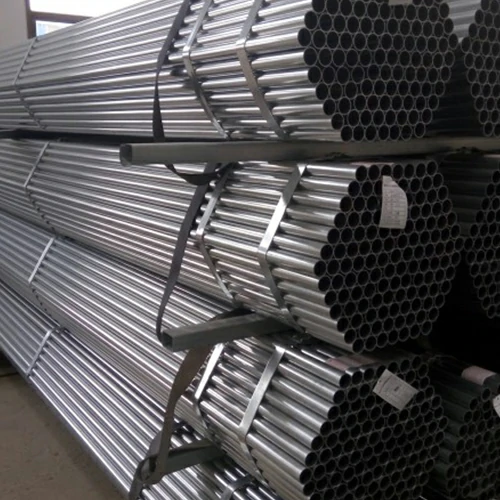China steel coil factories employ various strategies to effectively communicate with overseas clients and ensure seamless collaboration. Here are some common approaches they use:
- Multilingual Staff: Many China steel coil factories employ staff proficient in multiple languages, including English, to facilitate communication with overseas clients. These multilingual employees serve as liaisons between the factory and international clients, ensuring clear and effective communication.
- Dedicated Sales Representatives: Factories often assign dedicated sales representatives or account managers to oversee communication with overseas clients. These representatives act as primary points of contact, addressing inquiries, providing updates, and resolving issues on behalf of the factory.
- Communication Channels: Factories utilize various communication channels to interact with overseas clients, including email, phone calls, video conferences, and instant messaging platforms. They adapt to clients’ preferred communication methods and ensure timely responses to inquiries and requests.
- Regular Updates: Factories provide regular updates to overseas clients on order status, production progress, shipping schedules, and other relevant information. This helps clients stay informed and enables them to plan and manage their operations effectively.
- Transparency and Accountability: Factories prioritize transparency and accountability in their communication with overseas clients. They provide accurate and detailed information regarding product specifications, pricing, lead times, and any potential issues or delays that may arise during production or shipping.
- Technical Support: Factories offer technical support and assistance to overseas clients, addressing questions or concerns related to product specifications, quality standards, and customization options. China Steel sheet factory They leverage their technical expertise to provide valuable insights and guidance to clients.
- Cultural Sensitivity: Factories demonstrate cultural sensitivity and awareness when communicating with overseas clients, respecting cultural norms, customs, and communication preferences. They adapt their communication style and approach to align with the cultural expectations of their clients.
- Clear Documentation: Factories provide clear and comprehensive documentation to overseas clients, including quotes, contracts, invoices, and shipping documents. They ensure that all documentation is accurate, well-organized, and easy to understand, facilitating smooth transactions and logistics.
- Responsive Customer Service: Factories maintain responsive customer service channels to address inquiries, resolve issues, and provide assistance to overseas clients in a timely manner. They prioritize customer satisfaction and aim to exceed clients’ expectations through attentive and personalized service.
- Feedback Mechanisms: Factories actively seek feedback from overseas clients to evaluate their communication processes and identify areas for improvement. They encourage clients to provide input on their experiences, suggestions for enhancements, and any concerns they may have, fostering a collaborative and mutually beneficial relationship.
By implementing these communication strategies, China steel coil factories can effectively engage with overseas clients, build trust and confidence, and foster long-term partnerships based on open, transparent, and collaborative communication.
How do China Steel sheet factory ensure compliance with labor laws and regulations?
Ensuring compliance with labor laws and regulations is essential for China steel sheet factories to maintain ethical workplace practices and uphold the rights and well-being of their employees. Here are some ways these factories typically ensure compliance:
- Legal Awareness: China steel sheet factories stay informed about national and local labor laws, regulations, and standards governing employment practices. They regularly monitor updates and changes in labor legislation to ensure compliance with relevant requirements.
- HR Policies and Procedures: Factories establish comprehensive human resources (HR) policies and procedures that align with labor laws and regulations. These policies cover areas such as employment contracts, working hours, wages, benefits, health and safety, disciplinary procedures, and grievance mechanisms.
- Employee Training: Factories provide training and awareness programs to educate employees about their rights, responsibilities, and entitlements under labor laws. This includes training on workplace health and safety, anti-discrimination policies, and labor rights awareness.
- Fair Recruitment Practices: Factories adhere to fair and ethical recruitment practices, ensuring that employment opportunities are offered based on merit, without discrimination based on factors such as gender, China Steel coil factory age, ethnicity, or nationality. They also verify the legal eligibility of employees to work in accordance with immigration laws.
- Working Hours Compliance: Factories monitor and enforce compliance with regulations regarding working hours, overtime, and rest periods. They establish clear policies on maximum working hours per week, overtime compensation rates, and rest breaks to prevent employee exploitation and ensure a healthy work-life balance.
- Wage and Benefits Compliance: Factories ensure compliance with minimum wage laws and regulations by paying employees at least the legally mandated minimum wage rate. They also provide benefits such as social insurance, health insurance, and other statutory benefits required by law.
- Health and Safety Measures: Factories prioritize workplace health and safety by implementing measures to prevent accidents, injuries, and occupational health hazards. They conduct risk assessments, provide safety training, maintain safe working environments, and comply with regulations related to workplace safety and hygiene.
- Child Labor and Forced Labor Prevention: Factories prohibit the use of child labor and forced labor in accordance with international labor standards and local regulations. They verify the age and legal eligibility of employees and maintain records to ensure compliance with child labor laws.
- Labor Union Relations: Factories respect the rights of employees to organize and participate in labor unions or workers’ associations, as provided for by law. They engage in constructive dialogue with labor representatives, address labor concerns, and facilitate collective bargaining processes in accordance with regulations.
- Monitoring and Auditing: Factories conduct regular internal audits and inspections to assess compliance with labor laws and regulations. They may also engage independent auditors or third-party organizations to conduct external audits and verify compliance with labor standards and ethical sourcing practices.
- Remediation and Improvement: If non-compliance issues are identified, factories take prompt corrective action to address violations, mitigate risks, and prevent recurrence. They implement remediation measures, revise policies and procedures as necessary, and continuously strive to improve their labor practices.
By implementing these measures, China steel sheet factories demonstrate their commitment to ethical labor practices, respect for employee rights, and compliance with labor laws and regulations, fostering a positive work environment and sustainable business practices.
